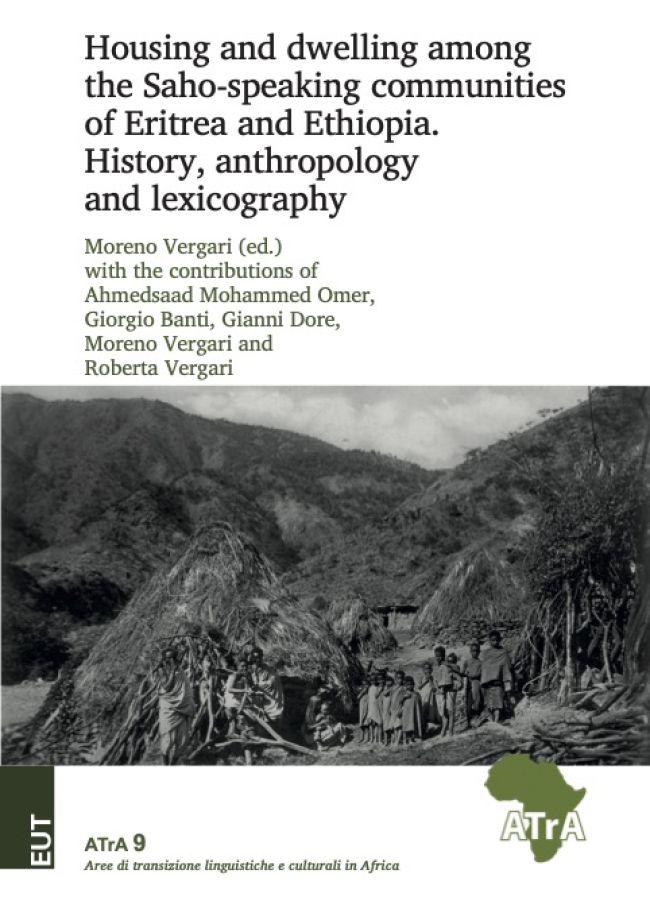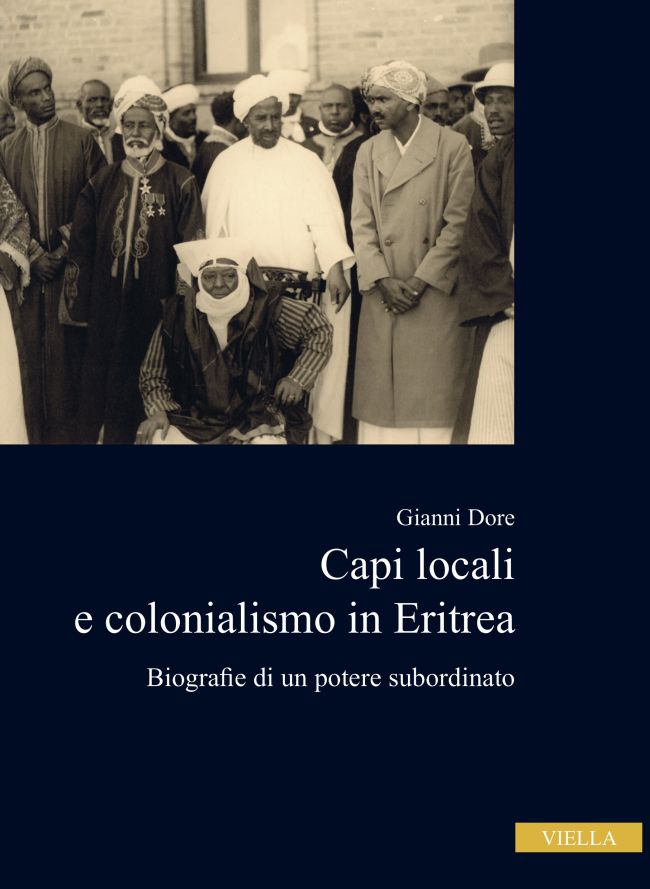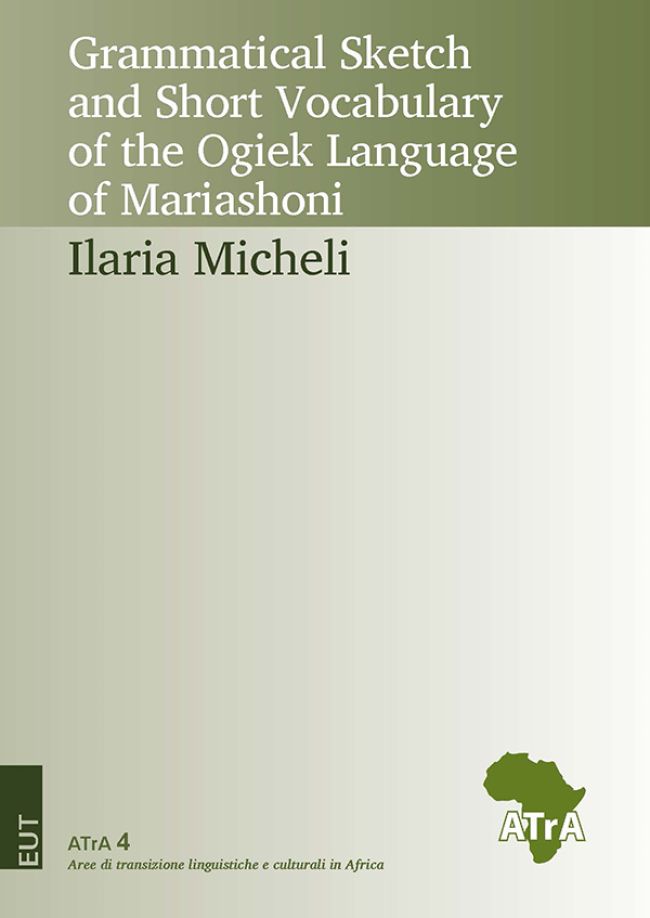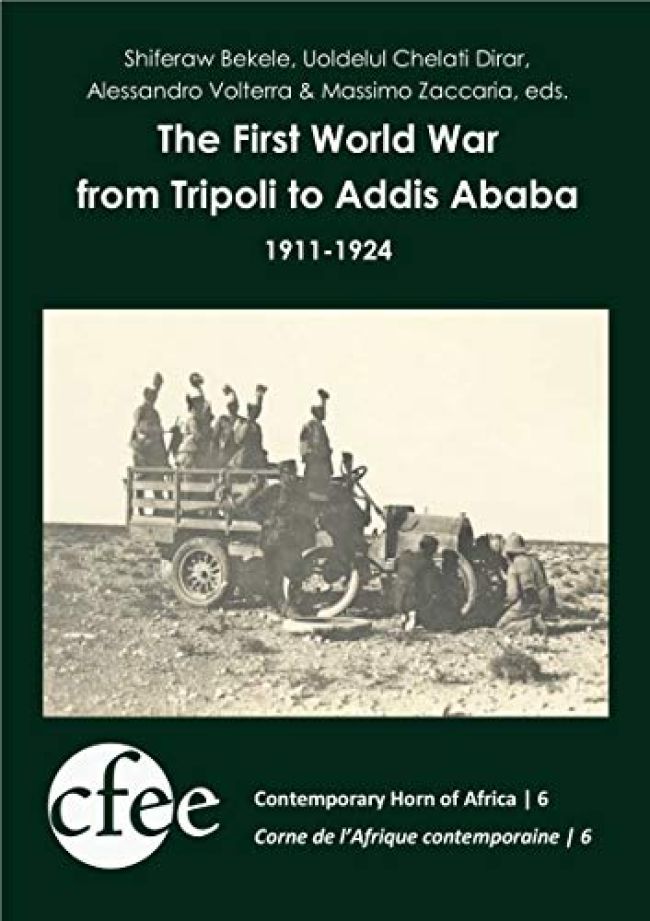Further publications.

Moreno Vergari (ed.) with contributions of Ahmedsaad Mohammed Omer, Giorgio Banti, Gianni Dore, Moreno Vergari and Roberta Vergari (2022)
Housing and dwelling among the Saho-speaking communities of Eritrea and Ethiopia. History, anthropology and lexicography.
ATrA 9. Trieste: EUT.
This book is the results of field research among the Saho-speaking communities of Eritrea and Ethiopia by a linguists and anthropologists from the non-profit association “Ethnorêma”, the University of Naples L’Orientale, the Ca’ Foscari University of Venice and local institutions. It is a product of the “Atlas of the Traditional Material Culture of the Saho” project, which aims at documenting the traditional material culture of the Saho, its variation and terminology across the different Saho-speaking communities of Eritrea and northern Ethiopia, and the more general dialect variation in phonology, grammar and the lexicon. In particular, this volume describes the Saho speakers’ knowledge of construction techniques and its lexicon, sociofamilial aspects related to dwelling and the daily activities associated in types of residences and their outbuildings. Comparison with research from the early 20th century provides a diachronic dimension, while the data elicited in some 20 different localities ensure synchronic depth, with a focus on dialectal variation. After a general introduction, Gianni Dore’s contribution is an extensive historical-anthropological description of these issues. Moreno and Roberta Vergari, and Ahmedsaad Mohammed Omer’s one is a rich encyclopedic lexicon of the terms related to dwelling and household activities.

Gianni Dore (2021)
Capi locali e colonialismo in Eritrea.
Biografie di un potere subordinato.
Roma: Viella.
After the end of the war with Ethiopia, that is from 1936 to 1941, Italian colonial officials – military and civil – had to manage the administration and daily lives in the territories both of previous and recent conquest, dealing with armed resistance until the collapse of the empire. This volume, using written and iconographic documents from the archive of the colonial precinct of Agordat, reconstructs the systems and practices of the management of power in a part of the empire, the Eritrean western lowlands, which was part of the trade network between the Red Sea and the Sudanese interior. Interpreting the “mini-stories” of daily life and the administrative notes found in personal histories, also accompanied by individual photographs, the research analyses the contradictory and volatile relations with the subordinate powers, in the person of political and religious leaders, and also with local office-holders and interpreters, necessary figures of an ambiguous mediation between colonisers and colonised.

Ilaria Micheli (2018)
Grammatical Sketch and Short Vocabulary of the Ogiek Language of Mariashoni. ATrA 4. Trieste: EUT.
Ogiek is a Nilo-Saharan, Satellite-Core, Core, Eastern Sudanic, Southern, Nilotic, Southern, Kalenjin language spoken by a community of Hunters and Gatherers living in the region of the Eastern Escarpement of the Mau Forest in Kenya. In the framework of a still very poorly described linguistic family, this work represents a first, non exhaustive and tentative descriptive grammatical sketch of the dialect spoken by the circa 15.000 Ogiek belonging to the 7 clans of the Morisionig family. The book contains also a short vocabulary of the language, where 646 Ogiek entries are recorded. The vocabulary is completed by a corresponding English-Ogiek wordlist.
